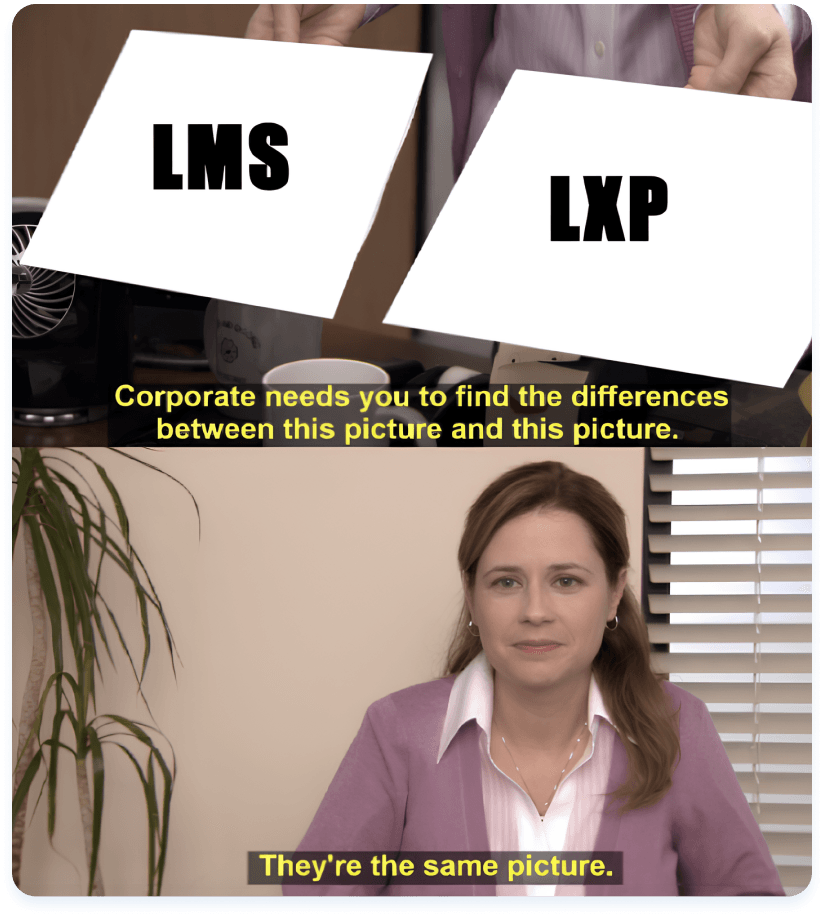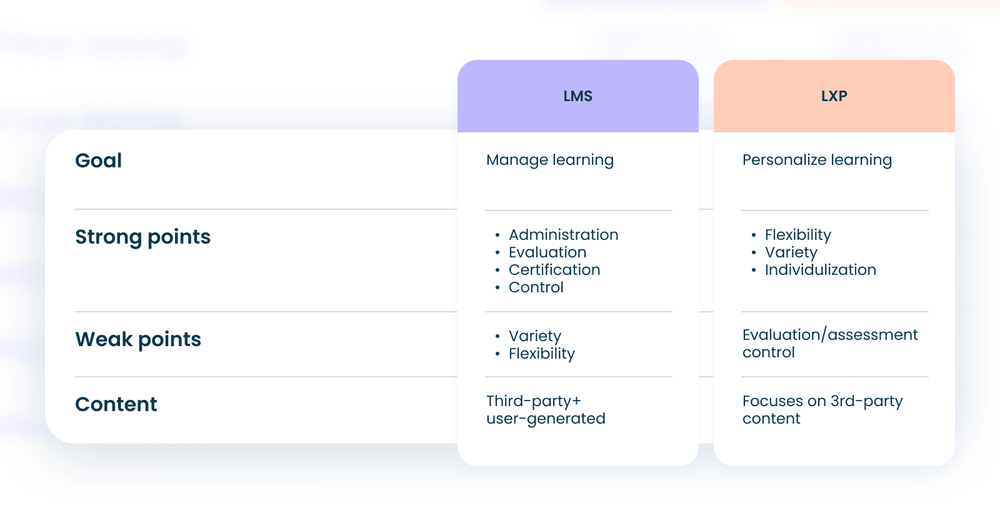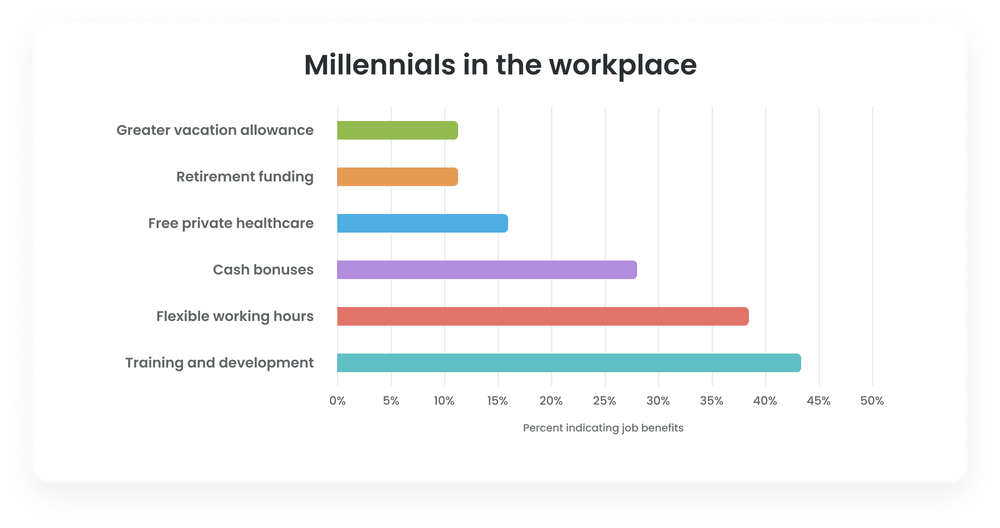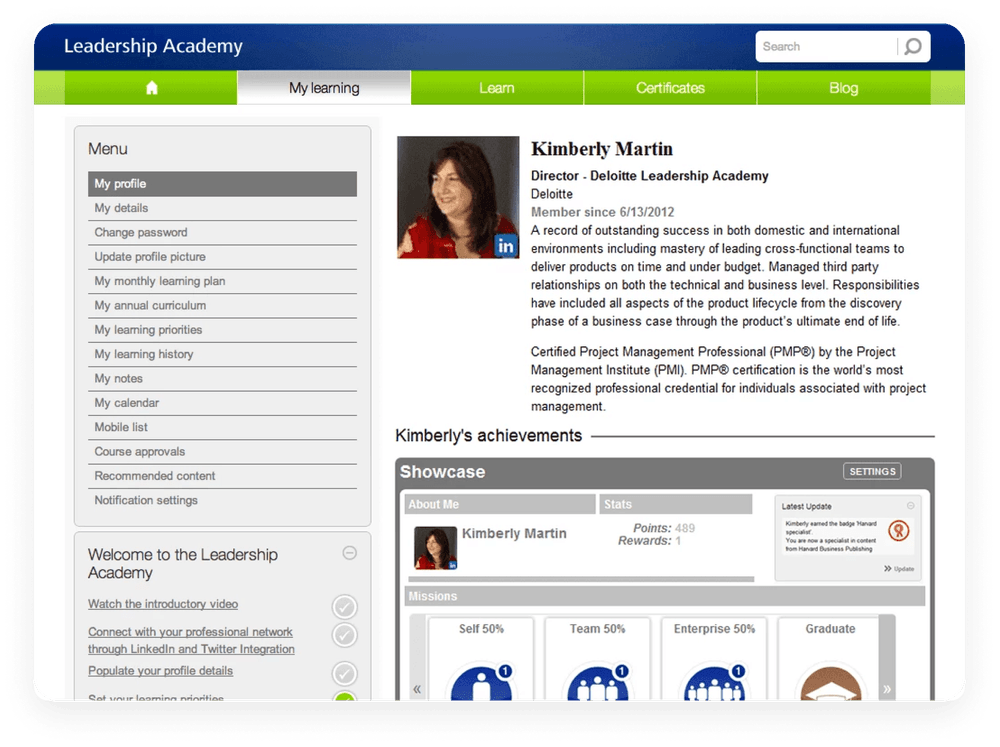What is LMS?
Choosing between elearning platforms? Yet, not sure what the difference is? Let’s probe deeper together!
Let’s start with the basics.
A learning management system (LMS) is a software product that handles all learning materials. Here’s what it means:
- Instructors can build online courses by uploading or creating content. This is how it looks:

- Users can see analytics data about the learning progress. They can also check report cards, course progress, assignment deadlines, and so on.

- It is the place where students can learn. They view lectures, read textbooks, watch videos and 3D content, play learning games, and more.
- Students can pass tests and submit assignments.
- Learners and instructors can communicate via a built-in messenger.
LMS examples are Aristek pre-built LMS, Canvas, Towuti, Docebo, and many more.
Aristek pre-built LMS combines the best of both worlds
Ready-made products and custom development. Exciting, isn’t it?
What’s LXP?
LXP stands for Learning Experience Platform. It offers the resources required to create employee-driven, customized learning experiences.
- Students are in charge of selecting the knowledge and skills they want to acquire.
- LXP offers extraordinary capacity for storage.
Employers provide various learning possibilities to their staff by digitizing the contents of the business library and making it available on an LXP.
Employees get access to relevant blogs, articles, podcasts, videos, and training materials.
- LXP means a flexible UI.
The common phrasing is “Netflix-like” — just like a streaming platform shows movies and series, LXP demonstrates learning courses.
The interface can be easily modified by the users to fit their preferences.
There are many LXPs on the market: Degreed, EdCast, LinkedIn Learning, and more.
LMS vs LXP: Difference
Yet, what’s the difference between LXP and LMS?
In fact, they’re mostly similar but definitely not the same.

The main goal of LMS is administration of learning, whereas LXP’s focus is delivering personalized learning.
LMS concentrates on managing internal learning resources, monitoring learner use, and granting necessary access.

On the other hand, LXP gives users access to knowledge from many online sources, such as social media, blogs, videos, and other channels.
LinkedIn Learning is one example of this approach.

It has access to the LinkedIn profiles of its users and can recommend content depending on the listed skills, groups they subscribe to, job positions, and so on.
Which one to choose?
Both options are good ways to improve your eLearning or boost corporate training. For example, they are great for workforce retention.
Modern employees place personal improvement very highly on their list of priorities when choosing a workplace.

The choice depends on your eLearning expectations and L&D goals.
LXPs are all about user experience and continual learning. They do this very well but can be an overkill for a company that has different needs.
Case 1
Doctors in the USA have to keep learning throughout their whole career — this is a legal requirement. At the same time, medical professionals are overworked and can treat extra learning as a chore.
In this case, an LXP can kill two birds with one stone: provide a way for the physicians to earn their credits and ease the burden placed on them.
Case 2
Human capital development significantly impacts multinational enterprises, as seen in SAP and Deloitte.
For example, Deloitte has a “Leadership Academy” that helps their executives constantly improve their skills.
LMS can streamline this kind of training, helping learners choose courses that would benefit them the most.

Case 3
We can also take a look at a coffee shop. If the owner’s only eLearning need is to train his baristas to use the equipment, a learning management system would be more than enough.
The LXP functionality would only cause extra expenses without bringing much in return.
To summarize, learning experience platforms (LXP) are the best for continuing education and on-the-job development.
Yet, for regular onboarding and compliance training, LMS is more than enough.
Wrapping up
LMS is ideal for structured learning experiences and tracking progress, while LXP focuses on personalized, informal learning opportunities and content curation.
Consider your organization’s unique needs and desired outcomes when deciding between the two platforms.
If you have any questions, feel free to reach out. We’ll help you make the best decision.




